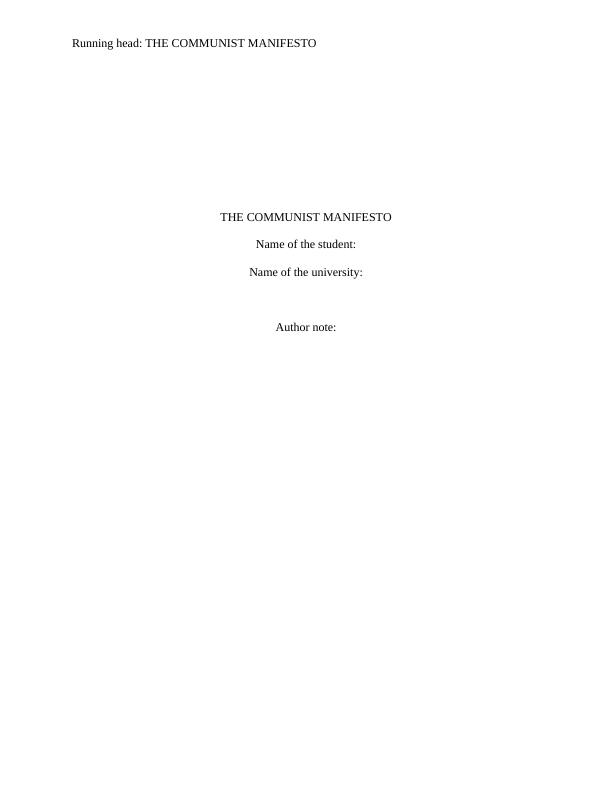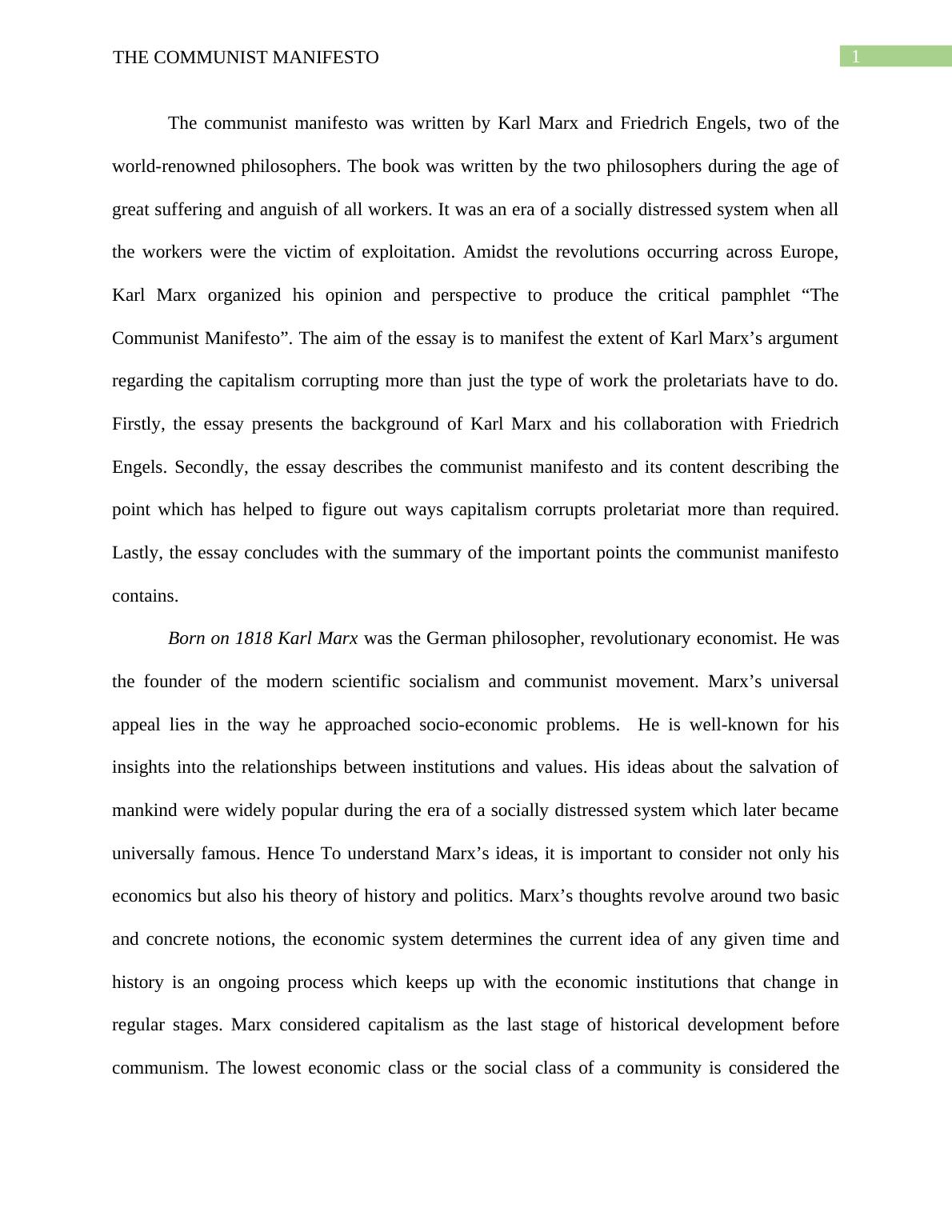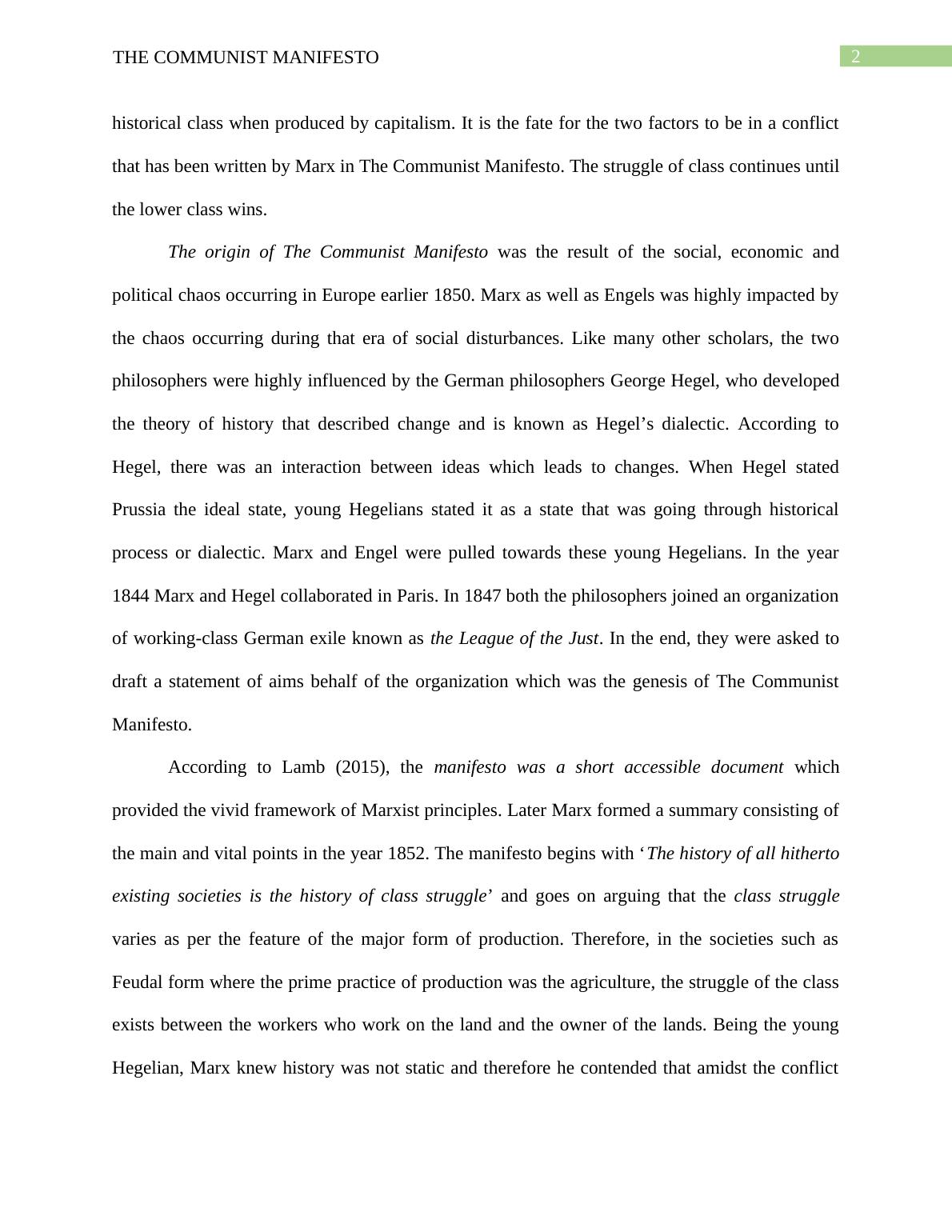The Communist Manifesto: Marx's Argument on Capitalism's Corruption Beyond Proletariat's Work
7 Pages1818 Words102 Views
Added on 2023-06-05
About This Document
This essay explains the extent to which Marx argues that capitalism corrupts more than just the types of work the proletariat have to do in The Communist Manifesto. It presents the background of Karl Marx and his collaboration with Friedrich Engels, describes the communist manifesto and its content, and concludes with the summary of the important points the communist manifesto contains.
The Communist Manifesto: Marx's Argument on Capitalism's Corruption Beyond Proletariat's Work
Added on 2023-06-05
ShareRelated Documents
End of preview
Want to access all the pages? Upload your documents or become a member.
Karl Marx: Historical Materialism, Labor, Commodities, and Alienation
|7
|2170
|146
Essay on Sociology Karl Marx 2022
|4
|734
|18
The Communist Manifesto - An Understanding
|6
|1458
|97
Capitalism and Proletariat
|7
|1738
|82
Nothing to Lose But Their Chains
|6
|1560
|197
Karl Marx: The Thinker Who Changed the World
|5
|833
|224



